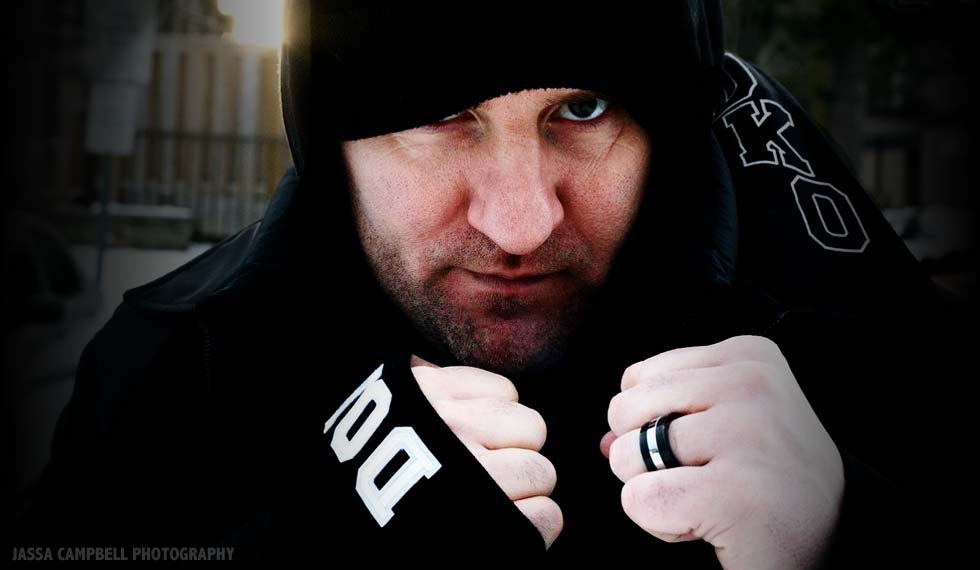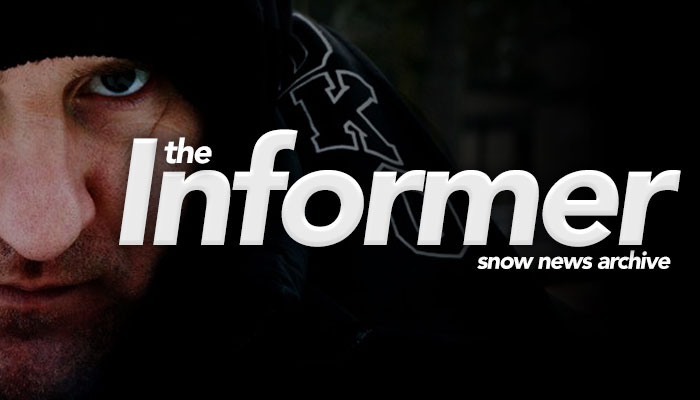The controversy over “voice appropriation” – one culture or race telling the stories of another – is most heated in the field of literature, but popular music is where appropriation often becomes the equivalent of a brazen daylight heist.
From jazz to blues to reggae and rock ‘n’ roll, white folks have long been borrowing and adapting and making piles of money out of music that black folks originated. Keith Richards cheerfully admits he lifted his licks from Chuck Berry; others have not been as gracious.
The trend spread to hip hop, a genre encompassing rap, funk and dance music that began in the inner cities of Los Angeles and New York in the late seventies. White boys began scratching vinyl and rapping, with results ranging from commercially successful and listenable (Beastie Boys) to mercifully forgotten (Vanilla Ice).
Most trends, especially those carried on the airwaves, don’t stop at the border and this one is no different: In Canada, too, you can find hip hop and Jamaican dancehall music – rapidly chanted lyrics over a swaying beat – in the least likely places.
Darrin O’Brien is 25 years old, an ex-convict of Irish descent, a product of Toronto’s housing projects, and a former member of a teen-age Kiss tribute band. Darrin O’Brien is also Snow, who has such an uncanny facility for singing dancehall music that, according to local legend – and
the singer himself – even Jamaicans think he’s a countryman.
Informer, an almost incomprehensible but wildly catchy tune sung in patois, brought Snow from the obscurity of playing for friends in Toronto to the spotlight of the Billboard chart in 1993. The album, 12 Inches of Snow, sold more than three million copies worldwide and Informer won Snow a Juno in 1994 for best reggae recording.
A happy outcome, but the song’s roots are more troubled: Snow wrote it about the man he says ratted on him, causing him to be held in a Toronto detention centre in the late eighties on attempted murder charges for almost a year before those charges were dropped. In fact, Snow’s whole life has been troubled, which can be a boon in the music world, where one rap sheet will stir up more interest than a nest of publicists.
It can also be a pain for those publicists, as Snow’s American record company, Warner, is finding out. In 1993, the singer was barred – “forever,” in his words – from entering the United States. Now Snow has a new record, Murder Love, to promote and he can’t put a toe across the border. Thank God for the visa-free information highway.
Snow is a Toronto boy, but the stuffy downtown hotel where he’s holed up for interviews is a big symbolic leap from the housing project where he was raised by a single mother. The impoverished environment led to drinking, fighting, jail: in fiction a cliche, here a reality.
He’s no stereotypical tough guy in person, but boyish in a baggy Tommy Hilfiger shirt, Dr. Martens cap and gold identity jewelry, including a thick bracelet that spells Snow. He’s amiable and soft-spoken, less articulate in conversation (he dropped out before high school) than in his
songs. Sitting next to a pile of recording equipment, he helpfully points out where the microphone actually is on a reporter’s tape recorder.
At first listen, it seems the outlaw spirit also fuels Murder Love, which begins with a track called Si Wi Dem Nuh Know We (which was originally called Si We Charged for Murder). Snow admits the track, which features Jamaican dancehall stars NinjaMan and Junior Reid, is dedicated
to his uncle Paddy, who was implicated in a recent Toronto slaying. Snow maintains he is innocent.
Murder Love is a record of different spirits, from the joyful first single, Anything for You, to the darker Rivertown, inspired by a trip to a slum outside Kingston, Jamaica. “Kids were playing with no shoes on … ” he says. “They got it rough, they got it bad. The government don’t do
nothing.”
What about the sinisterly named title track, which has a deceptively lovely chorus? Snow hedges for a minute, then says, “It’s about the IRA,” and begins to sing it in a sweeter voice than you’ll hear on record. He explains, “They’re killing people they should be loving. I’m saying to
Catholics and Protestants, they should be loving because they’re one people.
“I always write words that are hard to understand. You’ve got to listen. It could mean something different to you, and if it means something different to you that’s good. But that’s what it means to me.”
Despite his remarkable agility with the rapid, tongue-tripping style known as toasting, which he learned at parties with his black friends in the projects, words often don’t come easily to Snow. When it’s suggested this record is a departure for him, he scowls. “A departure? What does
that mean, different?”
“It’s a growth,” suggests his friend from the record company. “More mature.”
This is something Snow has been seeking, the maturity that’s the opposite of the drinking-and-scrapping lifestyle he grew up with.
“I was brought up in a neighbourhood called Allenbury, and that’s all we did was drink and fight,” says Snow, who now lives in the Toronto suburb of Scarborough. “All my friends had been in jail for years and whatnot. All the advice I was getting in that neighbourhood was drink and
fight, or let’s go steal. I didn’t have no other advice.” After he made his first record, he began travelling and gathering advice from different sources. “I never knew these kind of people before … Even if I have a drink, it’s not going to be ‘Let’s go steal that’ or be stupid. I’m a lot more mature.”
He’s not yet mature enough to stay completely out of trouble, despite protests that he’s trying. Just last month he was fined $500, stemming from a 1993 incident in which he found he was double-booked at a Toronto hotel, got angry and yelled at hotel employees, “Me, I shoot you, blood clot.” The irony is that Snow was trying to do the right thing: He had flown in to Toronto to perform at an AIDS benefit concert.
Intentions don’t get written into the record along with charges, though, and this was only the latest in a string of convictions that includes causing a disturbance and assault.
Some believe that a history of living outside the law will increase the popularity and legitimacy of a rapper; certainly American star Snoop Doggy Dogg wasn’t shunned after being charged with murder. While not every rapper is a gangsta, Tupac Shakur and Luther Campbell end up in court more often than, say, Peter, Paul and Mary.
But Snow doesn’t buy the connection. “I’m not trying to promote, ‘Oh yeah, I’m a bad gangster or rapper, I’m hardcore.’ I’m promoting, ‘Yeah, I’ve been there and I’ve seen what it’s done to people.’ People will listen because I’ve done it, I’ve been there …
“I’m not bragging about it, I’m just saying I’ve got this experience and I can tell you it’s not a place to go. Acting bad and running around with guns, shooting it up in the air, trying to act big in front of your friends – you’ll be cool for two or three years if you don’t get caught, and if you get caught you’re going to be not cool in jail for 20 years. Or you could chill out for a minute, live your life, don’t even bother about it.”
“We’re not from the ghetto, and we’re not from a gang,” says Cory Bowles, also known as Chek Love Shakil, one-third of a very young hip-hop group called Hip Club Groove. Actually, they’re from Truro, N.S., home to some of the world’s highest tides but not generally known for its ghettos, gangs or music scenes.
Shakil, 20, calls hip hop “beautiful, changing” music, the music he and bandmates DJ Moves (Brian Higgins) and MacKenzie the Underdog (Derek MacKenzie) listened to and played at parties while growing up in Truro.
“It’s music about personal experiences and places,” says Shakil, who raps along with MacKenzie while Moves works tapes and vinyl. “If we talked about political stuff, it would be really cheesy.”
Instead, they rap about having the best punchlines, about partying, about following your destiny and other young adult preoccupations on their first album, Trailer Park Hip Hop (there’s a shot of Shakil’s trailer on the cover). The record is out on murderecords, a Halifax label owned by
“alternative” guitar rockers Sloan, and the trio has moved to the Nova Scotia capital from their hometown. Hip Club Groove is on tour with Sloan, and during a Toronto stopover they sprawl in a quiet downtown bar, just a year or two past being there legally.
“Down there, you develop your own style. Like a guy in an igloo is going to develop his own style,” says Shakil.
“He uses the resources he has,” adds DJ Moves, who’s 21.
“The isolation has totally helped us,” says MacKenzie, 20. “For four years of being together, it was us in our bedrooms. We just experimented. Hip hop as an art form is only 20 years old, so there’s a lot of places it can go.”
Even to the edge of the country and back again. The tour with Sloan is exposing them to new audiences, but Hip Club Groove grumble about some of the closed ears of some audience members. The all-ages shows are great, because kids are open to all kinds of music, but they’re tired of what they call “butthead” university students, who just want to get hammered, see Sloan and not hear anything new.
Even this early in their career, there are other indignities they have had to endure, like being dissed by fellow bands for having a record deal and by insensitive or incorrect press reports, like the one that called them a white hip hop band. (“Obviously they weren’t looking,” says Moves,
“cause Cory is black.”)
At the end of the conversation, Shakil has modified his political position somewhat after thinking about what he used to listen to when he was growing up. “I liked shit that had something to say, like Big Daddy Kane. I was a conscious little kid. I had a chip on my shoulder, growing
up in an all-white trailer park.”
In Truro, N.S., three teen-agers heard the sounds that Big Daddy Kane (the self-styled “black gentleman vampire” from New York) and Boogie Down Productions were making in the cities to the south, and began to lay down beats of their own. They call the music “changing,” and they are proof that it is: one-time ghetto music that won’t be ghettoized. Like all popular music, it blooms, is carried on the wind, and blooms again somewhere else. Not appropriated, but expanded.


